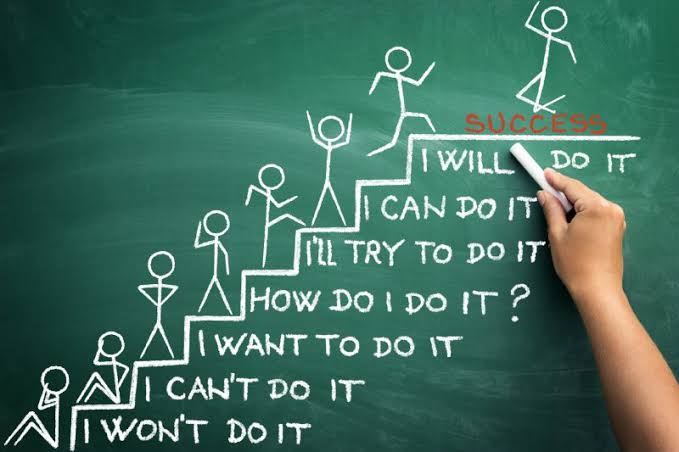Failure is often seen as the ultimate setback—a roadblock that halts progress and shakes confidence. Yet, paradoxically, some of life’s greatest lessons and successes stem from failure. If failure teaches us so much, why do we instinctively fear it? Understanding the psychology behind our fear of failure can help us transform this fear into a powerful tool for personal and professional growth.
Let’s explore why failure feels intimidating, how we can shift our perspective to view it as a stepping stone, and strategies for overcoming the fear of failure so that we can unlock our full potential.

Why Do We Fear Failure? Psychological Roots of the Fear of Failure
Our fear of failure often starts early in life, influenced by our surroundings, societal expectations, and personal experiences. Here are some key psychological reasons behind this fear:
- Fear of Judgment and Social Rejection: Many people worry that failure will lead to judgment or disappointment from others. This fear can make even minor setbacks feel threatening, as we’re concerned about our reputation and social acceptance.
- Perfectionism and Self-Worth: For perfectionists, failure is especially difficult to bear, as their sense of self-worth is often tied to success. This mindset can make any setback feel like a reflection of personal inadequacy rather than an opportunity for growth.
- Fear of the Unknown: Failure can bring uncertainty about the future, making it hard for us to see beyond the immediate setback. This uncertainty can trigger anxiety, especially for those who prefer a sense of control.
- Early Conditioning: Often, childhood experiences and societal expectations shape our relationship with failure. Many people grow up learning that success equals worthiness, which can lead to a lifelong aversion to risk-taking and setbacks.
Understanding these reasons helps us see that the fear of failure is normal—and that we can reframe it to encourage resilience, learning, and adaptability.

How Failure Teaches Us and Enhances Growth
Despite the discomfort associated with it, failure is one of life’s best teachers. Here’s why failure can be a powerful catalyst for growth:
- Builds Resilience: Each failure offers a chance to develop resilience. Learning to recover from setbacks strengthens mental toughness, making it easier to handle future challenges.
- Encourages Self-Reflection: Failures encourage us to reflect on our actions, decisions, and strategies. This reflection can provide insight into areas of improvement and help us make more informed choices in the future.
- Enhances Adaptability: Facing and learning from failure teaches us to adapt. When we experience setbacks, we’re forced to reassess and find new solutions, which enhances creativity and flexibility.
- Inspires Innovation: Some of the most significant inventions and discoveries emerged from failure. Setbacks often push us to think outside the box, leading to breakthroughs that might not have been possible otherwise.

Reframing Failure: How to Change Your Perspective on Setbacks
Changing our mindset about failure can make all the difference in how we approach challenges. Here are some ways to reframe failure and turn it into a positive force:
- Embrace the Learning Opportunity: When failure happens, focus on what you can learn from it. Every setback is a chance to gain new insights that can guide you on your path forward.
- Separate Self-Worth from Success: Remember that failure is an event, not an identity. Your worth isn’t tied to a single outcome, and learning to separate personal value from success can help you approach setbacks more constructively.
- View Failure as a Stepping Stone: Rather than seeing failure as the end of the road, treat it as a stepping stone on the journey to success. Every failure brings you closer to understanding what works and what doesn’t.
- Practice Self-Compassion: Be kind to yourself when you fail. Recognize that setbacks are a natural part of growth and give yourself the grace to learn and move forward.

Strategies for Overcoming the Fear of Failure
To reduce the fear of failure, try these practical strategies:
- Set Realistic Goals: Unrealistic goals can set you up for failure. Instead, set achievable, incremental goals that allow you to experience small wins along the way. This builds confidence and makes it easier to handle setbacks.
- Use Visualization Techniques: Visualize yourself succeeding, but also prepare for potential setbacks. Visualization helps mentally rehearse how you’d handle challenges, which can reduce anxiety about failure.
- Focus on Growth, Not Perfection: Aim to learn from every experience rather than trying to be perfect. Embracing a growth mindset can help you see failure as part of the learning process, not as a judgment of your abilities.
- Take Small Risks Regularly: Regularly stepping out of your comfort zone and taking small risks can desensitize you to the fear of failure. Each small risk helps you build confidence and resilience, making larger risks feel more manageable.
- Seek Feedback: Constructive feedback from mentors, colleagues, or friends can offer valuable insights into areas where you can improve. Receiving feedback helps you see failure as part of the learning process and makes it easier to adjust and adapt.
Product Suggestions for Managing Fear of Failure and Building Confidence
Here are some helpful tools and resources to support a healthy mindset toward failure:
- Books on Growth Mindset and Resilience:
- Mindset: The New Psychology of Success by Carol Dweck
- Failing Forward: Turning Mistakes into Stepping Stones for Success by John C. Maxwell
- Journals for Self-Reflection:
- A gratitude journal or self-reflection journal can help you process setbacks and appreciate small victories, building a balanced view of your progress.
- Promptly Journals offers guided self-reflection journals that encourage a growth mindset.
- Apps for Meditation and Stress Management:
- Apps like Calm and Headspace offer guided meditations focused on reducing fear and building resilience, helping you approach failure with a more relaxed and open mindset.
- Online Courses for Skill Development:
- Platforms like Skillshare and Udemy offer courses on building confidence, public speaking, and overcoming the fear of failure. These can help you develop the tools to turn setbacks into learning opportunities.
Conclusion: Embracing Failure as a Pathway to Success
If failure is such a powerful teacher, why do we fear it? Our fear is rooted in social conditioning, perfectionism, and uncertainty. However, by embracing failure as part of the learning process, we can transform setbacks into stepping stones for growth and resilience.
By reframing our perspective on failure, setting realistic goals, and practicing self-compassion, we can build a mindset that welcomes challenges and thrives on learning. The fear of failure doesn’t have to be a barrier—it can become a catalyst for discovering our fullest potential and finding success on our own terms.



